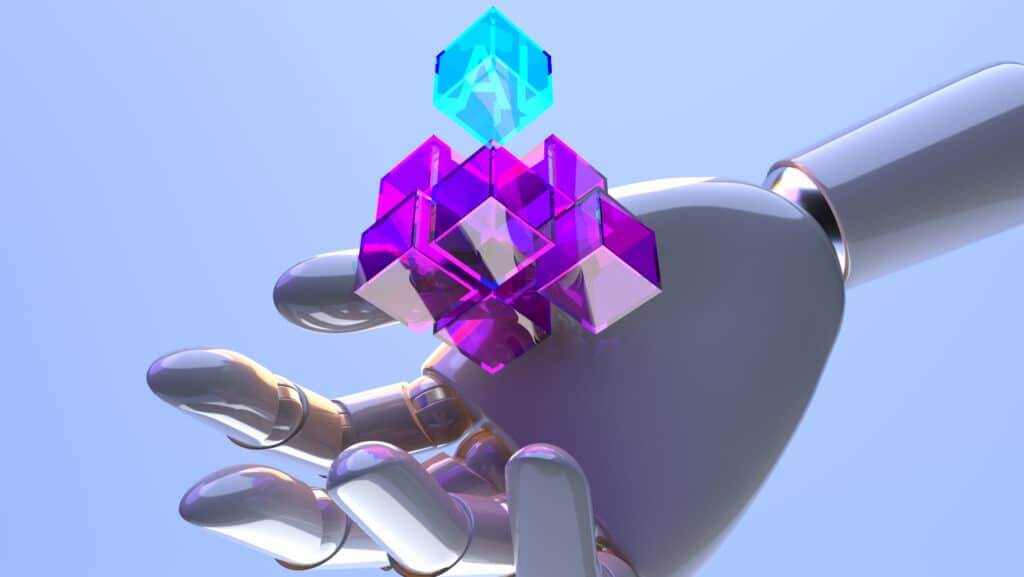Summary:
-
Ethereum’s rise in popularity attracts companies like Mastercard and Visa for faster, more efficient payments on centralized systems.
-
AI could identify vulnerabilities in Ethereum’s smart contracts, generate secure codes, and reduce investment risks in a volatile market.
-
Though AI integration with Ethereum could enhance security, it poses challenges like data bias, transparency, and interpretability.
Ethereum is one of the most innovative blockchain solutions on the market, and an increasing number of companies are leveraging it for cost-effectiveness and scalability benefits. Brands like Mastercard and Visa are approaching the Ethereum and Solana blockchains to make payments faster and more efficient for users, although they’re centralized ecosystems.
Still, this is only the beginning of a long-term development stage in which we introduce and adopt decentralization for enhanced business transparency, better decision-making skills, and autonomy. The rise of the ETH price has also contributed to the wide adoption of the blockchain since its value has steadily grown over time, enhancing customers’ trust.
However, Ethereum has yet to become widely available for our worldwide networks due to some challenges, including security and efficiency. One of the numerous solutions to these issues would be leveraging Artificial Intelligence. Here’s how it could be useful.
AI Can Better Identify Vulnerabilities Than Any Other Tool
Although Ethereum is fairly efficient in keeping users and their finances safe, the problem is its smart contracts. These technologies provide a fast and automated way for agreements to be completed once both parties agree on a set of pre-determined rules. Therefore, they handle the world based on algorithms and written codes.
Across these smart contracts, developers have found numerous vulnerabilities in time. For example, smart contracts rely on the data sources used, which might not always be reliable, so they can interact with compromised price feeds. Another common vulnerability on Ethereum happens when multiple calls-to-function happen simultaneously, hindering the efficiency of the code in taking them all in order. This phenomenon is called reentrancy and can expose the network to numerous hacks.
Artificial Intelligence could identify these imperceptible vulnerabilities without much effort, especially since one of its most interesting use cases is automated vulnerability scanning. The technology uses patterns to detect any liability in the network and machine learning algorithms to analyze considerable amounts of data.
ADVERTISEMENT
AI Can Generate Smart Contract Codes for Enhanced Security
Besides the security that comes from better vulnerability analysis, smart contract code generation can be a potentially helpful use case to ensure higher levels of network security. Considering that humans develop smart contracts, they’re not perfect and leave space for cracks in the code. Developing a smart contract means planning the project, working with a team, and choosing essential factors like a hosting provider and a suitable blockchain type.
However, developers can leverage the power of AI to generate smart contract codes, which is a simpler way to comply with security standards and requirements. Generative models can create these codes as they learn from poor code samples or focus their attention on adequate examples.
Machine learning allows AI to learn from developers’ mistakes and the best examples of how to create a smart contract. Therefore, it can generate correct codes that meet specific requirements for different blockchains, including Ethereum, one of the most developed and expanded on the market.
AI Can Reduce Ethereum Investment Risks
Investing in Ethereum isn’t that different from any other cryptocurrency. After all, its nature makes it volatile, so its prices are influenced by how industries perform and investors’ emotions. At the same time, Ethereum has numerous competitors, including Cardano, Solana, and Polygon. This makes it a risky investment if its popularity falls behind these blockchains.
Therefore, when investing in Ethereum, users must always take additional precautions, such as adopting specific strategies and staying up-to-date with the latest crypto news. However, this could change if AI is introduced as a way to evaluate cryptocurrency models by analyzing transaction records, social media data, and market performance information through machine learning algorithms.
Such an evaluation model could efficiently predict potential cryptocurrency risks so investors can better avoid the dangers of losing their investments. The AI-based model could establish a healthier and safer crypto environment for when digital decentralized assets become legal tender worldwide.
ADVERTISEMENT
For now, investors can adopt a few ways through which they can mitigate risks and vulnerabilities, such as the following:
- Conduct research into all crypto projects to ensure they’re getting to a safe and productive asset;
- Diversify their portfolios to spread out evenly potential risks but also income;
- Set realistic goals about their risk tolerance, meaning they know their limits;
- Avoid emotional decision-making, which is often the cause of FOMO (fear of missing out);
However, AI integration is Not That Simple
Artificial Intelligence is not a new subject, but it has only recently become more approachable by the regular user. At the same time, companies can better introduce it as a tool for analyzing data and performing some of the most time-consuming tasks, which is a big step towards modernization.
However, it has already posed numerous challenges in centralized systems. Therefore, some fear it’ll be even more difficult to control it in decentralized environments. First, making AI truly efficient requires developers to introduce massive amounts of data, from which a considerable part might not be relevant or biased. Therefore, communities would need to access reliable data sets for the AI model to be accurate.
On the other hand, AI and cybersecurity are still under scrutiny after experts noticed how AI tends to use sensitive data without being able to filter through what’s ethical or not. Moreover, lacking AI transparency can lead to inaccuracies and inserted outcomes.
Finally, AI algorithms are pretty complex to break down at the moment, so we still need time to learn about them and control them better in a way that benefits users. Since AI is not that easily approachable, it could pose problems in transparency and interpretability.
What Do You Think About Using AI With Ethereum?
Ethereum is one of the most developed blockchains on the market, having reached collaborations with centralized companies like Visa or Mastercard. Its functionalities include smart contracts, DAOs and Daps, but developers can always get creative with designing new tools and applications to contribute to the ecosystem. The use of AI would further enhance the blockchains’ capabilities and solve its issues by predicting risks and analyzing potential investment strategies.









